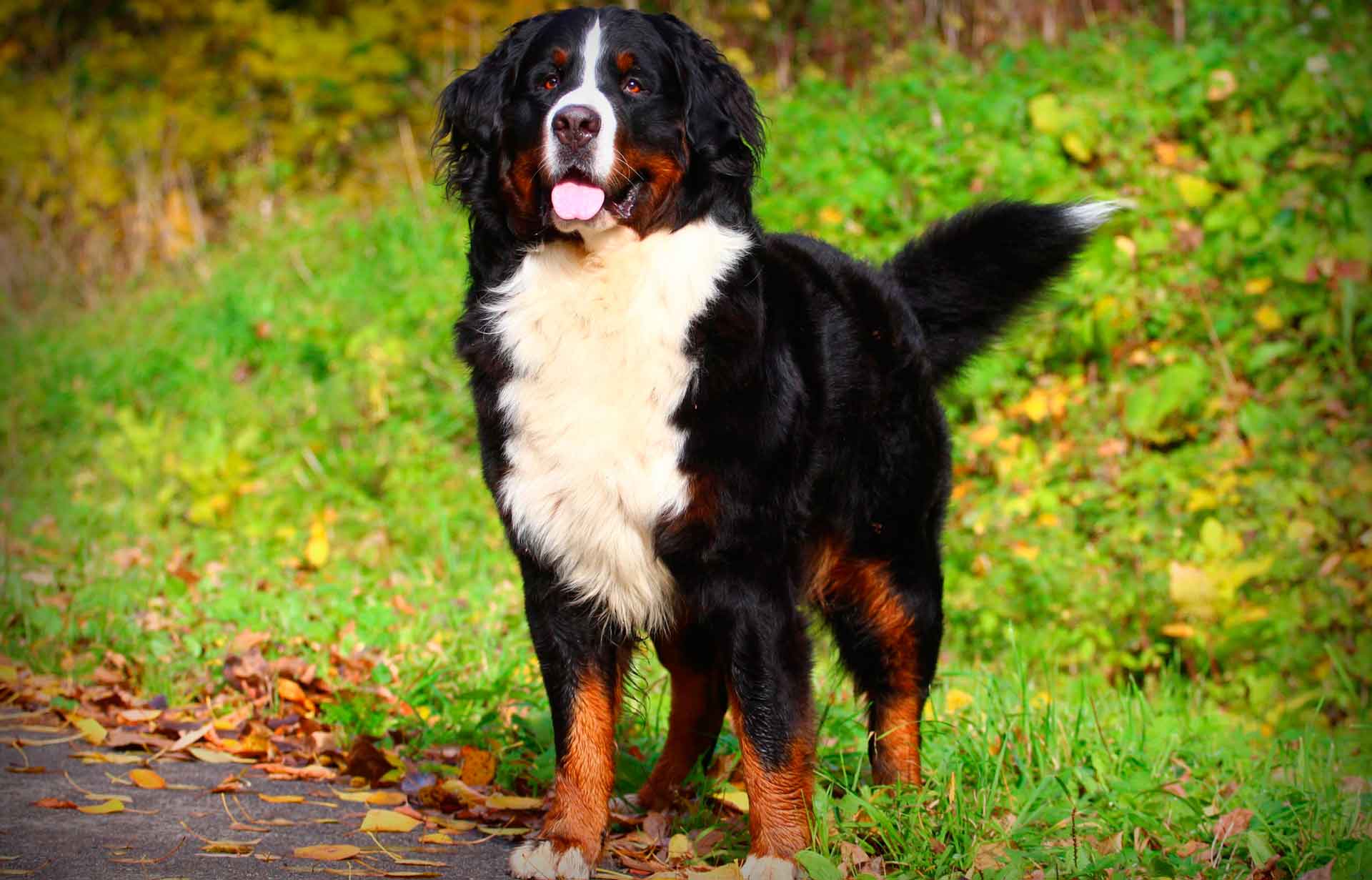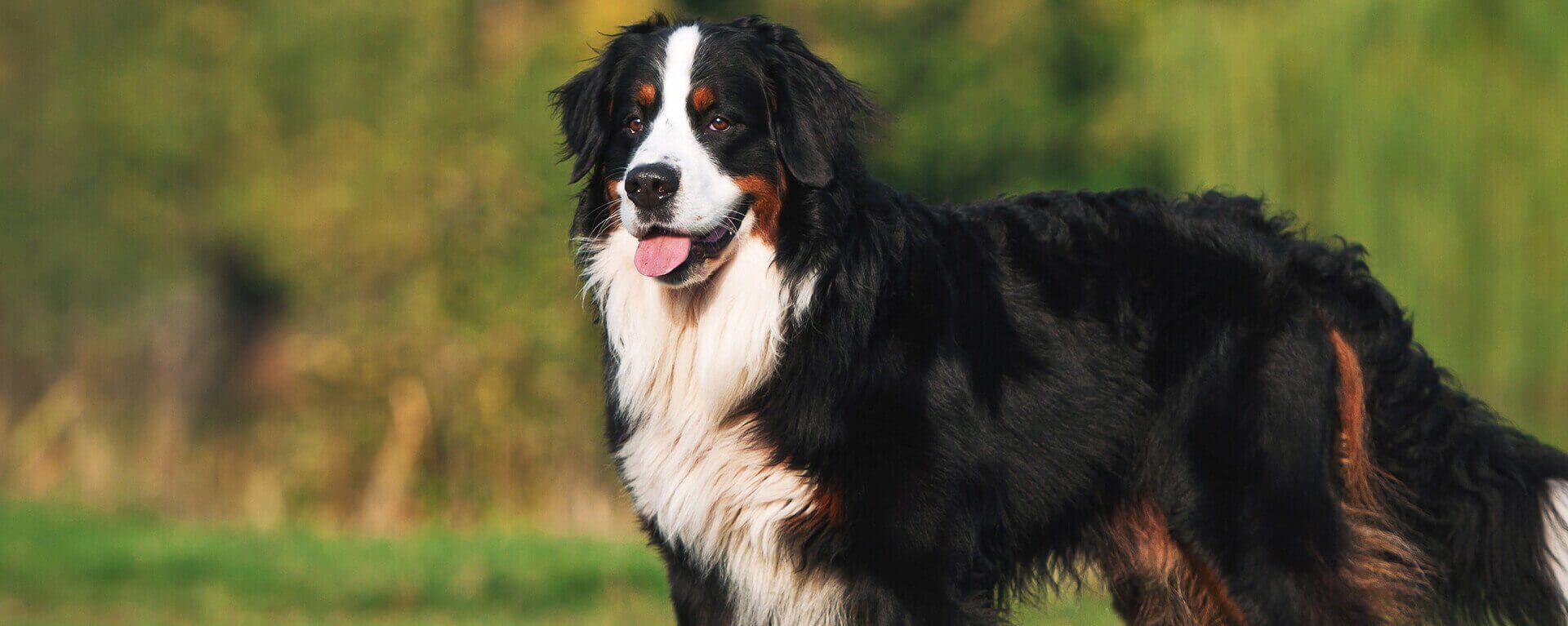Understanding Bernese Mountain Dogs: History, Traits & Care Tips
Do you find yourself captivated by the majestic presence of the Bernese Mountain Dog? These gentle giants, renowned for their striking tricolor coats and affable personalities, have earned a special place in the hearts of dog lovers worldwide. Their history is rich, their temperament endearing, and their capabilities surprisingly diverse, making them a breed worthy of exploration.
The Bernese Mountain Dog, often affectionately called the "Berner," is a testament to the enduring bond between humans and canines. Their journey from working dogs in the Swiss Alps to beloved family companions is a fascinating tale of adaptation, dedication, and the unwavering pursuit of companionship. From their humble origins as farm dogs to their current status as cherished members of countless households, the Berner's story is one of remarkable resilience and enduring charm.
| Attribute | Details |
|---|---|
| Origin: | Swiss Alps, Switzerland |
| Size: | Large |
| Weight: | Males: 80-115 pounds; Females: 70-95 pounds |
| Height: | Males: 25-28 inches; Females: 23-26 inches |
| Coat: | Thick, tri-colored (black, white, and rust) |
| Lifespan: | 7-10 years |
| Temperament: | Affectionate, loyal, intelligent, friendly |
| Energy Level: | Moderate |
| Trainability: | Moderate |
| Grooming: | Regular brushing required |
| Known Health Issues: | Hip and elbow dysplasia, certain cancers |
| Use: | Companion, working dog (carting, herding, draft work) |
For further information on the breed standard, health concerns, and responsible ownership, please refer to the American Kennel Club (AKC) website.
The Bernese Mountain Dog's history is deeply rooted in the Swiss Alps, specifically in the canton of Bern. These dogs, originally known as "Drrbchler," were primarily utilized as farm dogs. Their roles were multifaceted, encompassing everything from pulling carts and guarding livestock to herding cattle. Their sturdy build and remarkable strength made them invaluable assets to the farmers who relied on them. The dogs were also used to guard the family and property. The Bernese Mountain Dog's working heritage is still evident in their physical and mental capabilities. They are a versatile breed, capable of excelling in a variety of activities, from carting and drafting to obedience and agility.
The breed's distinctive tri-color coat, a striking combination of black, white, and rust markings, served not only as a visual identifier but also provided a degree of camouflage in their mountainous environment. This unique coloration, along with their robust build and amiable nature, contributed to their popularity and enduring appeal.
Despite their size, Berners are known for their gentle and friendly disposition, making them excellent companions for families with children and other pets. Their loyalty is unwavering, and they form strong bonds with their human counterparts. However, they require early socialization and consistent training to ensure they develop into well-behaved and well-adjusted members of the family. Early exposure to different people, places, and situations is crucial for shaping their temperament and preventing potential behavioral issues.
The breed's history dates back to the early 20th century, with the formal recognition by Swiss breeders, who played a pivotal role in standardizing the breed and preserving its unique characteristics. The breed was later introduced to the United States, where it quickly gained popularity as a family pet and working dog.
Bernese Mountain Dogs thrive on companionship and are happiest when included in family activities. They are not suited to be left alone for extended periods and require regular interaction and mental stimulation to prevent boredom and potential destructive behaviors. Their intelligence and eagerness to please make them relatively easy to train, but positive reinforcement methods are essential for fostering a strong bond and achieving optimal results.
Berners are prone to certain health issues, which prospective owners should be aware of. Hip and elbow dysplasia are common concerns, along with certain types of cancer. Responsible breeders prioritize health testing to minimize the risk of these conditions. Regular veterinary check-ups and a healthy diet are crucial for maintaining their well-being. The breed's lifespan is typically shorter than that of smaller breeds, averaging 7-10 years.
The large size and thick coat of the Bernese Mountain Dog necessitate proper care. Regular grooming, including brushing several times a week, is essential to prevent matting and keep their coat healthy. They are not ideally suited to hot climates and require access to shade and cool environments during warm weather. Furthermore, their diet needs to be carefully managed to prevent obesity, which can exacerbate health problems.
The Bernese Mountain Dog's journey from Swiss farm dog to beloved family member is a testament to their adaptability and enduring charm. Their gentle nature, striking appearance, and unwavering loyalty have endeared them to people around the world. With proper care, training, and socialization, Berners can bring years of joy and companionship to their owners. Choosing a Bernese Mountain Dog is a commitment to providing a loving home and ensuring their physical and emotional well-being.
The breed's versatility also extends to their role in various activities, showcasing their intelligence and trainability. Berners excel in carting, a traditional activity where they pull carts, demonstrating their strength and work ethic. They are also well-suited for drafting, carrying loads, and herding, where they demonstrate a natural instinct to work with livestock. Furthermore, their gentle temperament and intelligence make them suitable candidates for therapy work, bringing comfort and joy to those in need.
In the modern world, the Bernese Mountain Dog's role has evolved beyond its working origins. Today, they are cherished companions, beloved members of families, and active participants in various dog sports and activities. From hiking and camping to obedience and agility, Berners are adaptable and eager to participate in activities with their owners. Their intelligence and willingness to please make them relatively easy to train, but positive reinforcement methods are essential for fostering a strong bond and achieving optimal results.
However, potential owners should be aware of the breed's specific needs and potential challenges. Berners are prone to certain health issues, including hip and elbow dysplasia, bloat, and certain types of cancer. Regular veterinary check-ups and responsible breeding practices are crucial for minimizing the risk of these conditions. Their large size and thick coat require regular grooming, including brushing several times a week, to prevent matting and maintain their overall health.
The breed also requires significant exercise and mental stimulation. Daily walks, playtime, and opportunities to engage in activities are vital for preventing boredom and destructive behaviors. Berners are social creatures and thrive on companionship, so they should not be left alone for extended periods. They require a home environment where they can feel included and loved.
The Bernese Mountain Dog is a breed that requires a dedicated and informed owner. Their intelligence, loyalty, and gentle nature make them wonderful companions, but their health concerns and need for consistent training and care necessitate a commitment from prospective owners. With the right approach, however, Berners can bring immense joy and companionship to their families, enriching their lives in countless ways. Their legacy as a working breed and devoted companion continues to thrive.
Furthermore, the Bernese Mountain Dog has a unique place within the canine world. They are known for their remarkable ability to form strong bonds with children. They are patient, tolerant, and playful, often becoming a beloved playmate for kids of all ages. When introduced to children early in life and raised with proper socialization, they adapt well to the presence of young ones, bringing warmth and joy to family life.
Moreover, Berners often integrate harmoniously with other pets in the household. Their gentle disposition and natural inclination toward companionship make them welcoming to other dogs and cats when properly introduced. Early socialization and a patient introduction process are key to achieving a peaceful coexistence, enhancing the overall well-being of the family. However, it is essential to supervise interactions between pets and children, ensuring safe and positive experiences for all.
The Bernese Mountain Dog's story is a testament to their resilience and unwavering spirit. They are more than just pets; they are companions, protectors, and loyal friends. They have journeyed through generations of service and companionship, and today they continue to enrich the lives of families around the world. Their legacy is one of love, dedication, and the profound connection between humans and animals.
In order to secure a healthy Bernese Mountain Dog, you should consider sourcing from a reputable breeder who prioritizes health testing and responsible breeding practices. This is essential to minimize the risks associated with genetic health issues. Reputable breeders thoroughly screen their dogs for common ailments like hip and elbow dysplasia and certain forms of cancer. They provide you with a full picture of the dog's health and breed lineage. It is also essential to meet the puppy's parents and observe their temperament and living conditions to evaluate the environment in which the puppy was raised.
When you acquire a Bernese Mountain Dog, it's a good idea to have a detailed understanding of their health and specific dietary requirements. Because they are prone to bloat, you need to be mindful of their feeding habits. This might include feeding small, frequent meals and also monitoring their food and water intake. A nutritionally balanced diet is also vital to maintaining their overall health and ensuring longevity.
Proper socialization is key for the development of a well-adjusted Berner. Expose your puppy to a broad array of people, places, and situations from a young age. This helps them become more confident and less prone to fear or aggression. Enroll them in puppy classes to establish a foundation in basic obedience and socialize them with other dogs. Regular training is important to encourage positive behavior and is a continuing process throughout their lives. This ensures a well-behaved companion.
The Bernese Mountain Dog's distinctive appearance, characterized by its tri-color coat, also needs careful consideration. They are large and have thick coats. Regular grooming sessions, which include brushing several times a week, are essential to prevent matting and reduce shedding. During the warmer months, Berners can experience discomfort from the heat. Providing access to air-conditioned spaces, shade, and fresh water is crucial. It also helps to take them out for walks during the cooler parts of the day. Always keep in mind their specific needs.
Bernese Mountain Dogs thrive on companionship and attention. They are happiest when they are included in family activities. Their innate loyalty makes them ideal for families looking for a loyal and loving companion. They thrive with daily interaction, and the owners should include them in their daily life. This deepens the bond between you and your dog.
In summary, the Bernese Mountain Dog stands out as a breed that beautifully mixes charm, loyalty, and a loving temperament. As you take on the role of a Bernese Mountain Dog owner, remember that this is a commitment to give them a loving environment and to ensure their physical and emotional well-being. The reward of having such a loving friend is well worth the dedication, making it a rewarding journey filled with happiness and unwavering companionship.
The Bernese Mountain Dog is a breed that exemplifies the best qualities of the canine world. Their capacity to form meaningful connections with people, their loyalty, and their eagerness to engage make them a great choice for families of all kinds. As an owner, you should be prepared to offer lots of love, attention, and the right care. The Bernese Mountain Dog will make your life richer, more joyful, and full of affection.



